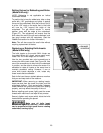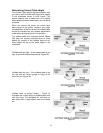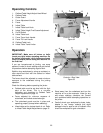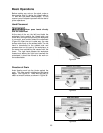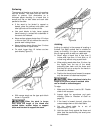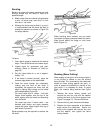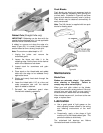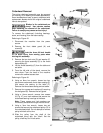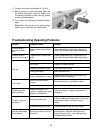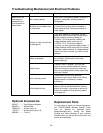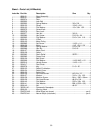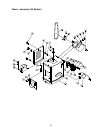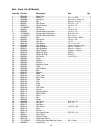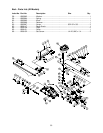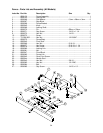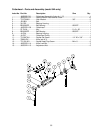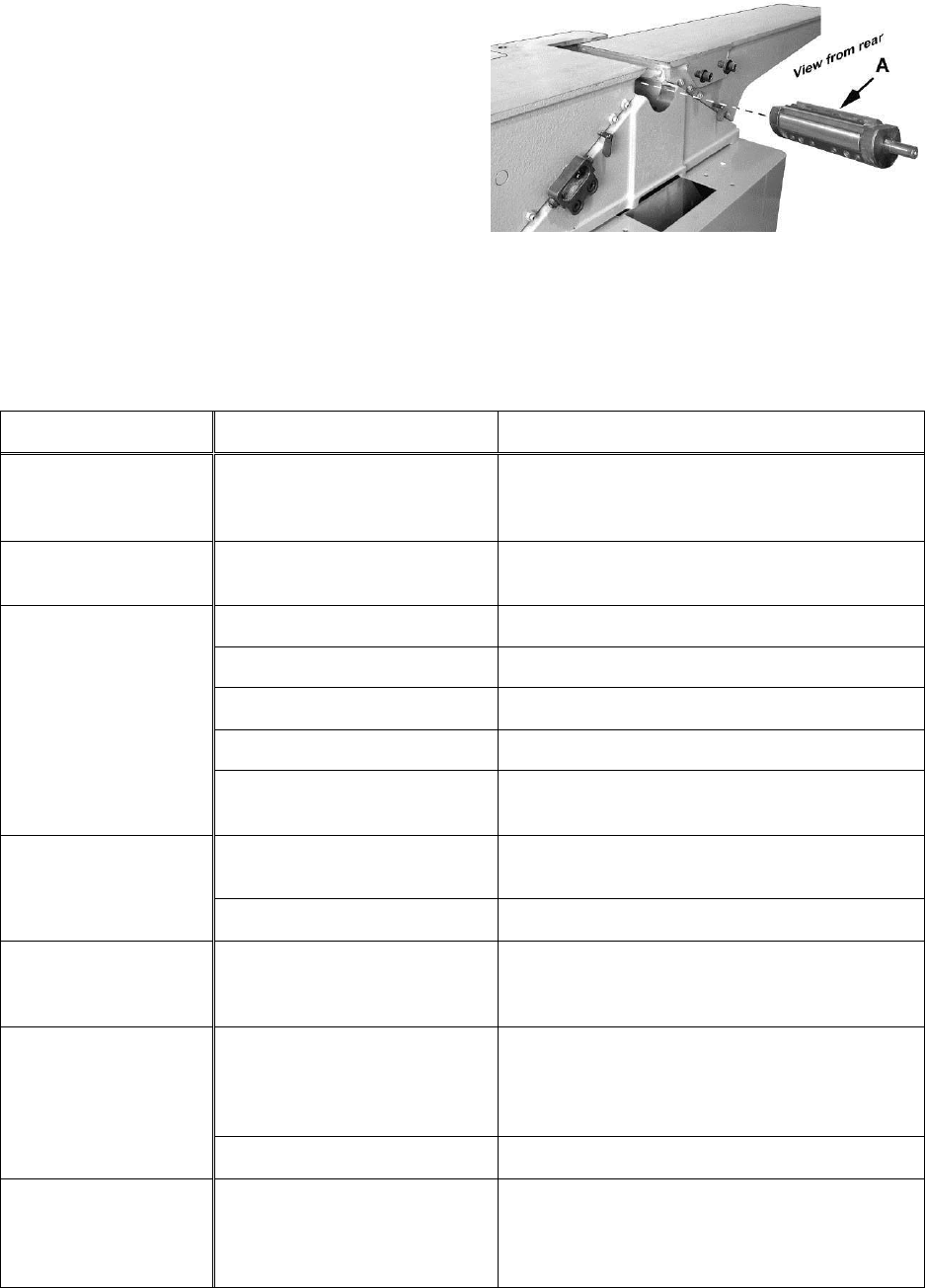
28
11. Carefully remove the cutterhead (A, Fig. 48).
12. Before placing the new cutterhead back into
the casting, thoroughly clean the "saddle" and
the bearing housings of saw dust and grease
so that they seat properly.
13. To re-install the cutterhead, reverse the above
steps.
Note: When securing the fence base casting,
make sure it is level with the outfeed table.
Figure 48
Troubleshooting Operating Problems
Trouble Probable Cause Remedy
Finished stock is
concave on back
end.
Knife is higher than outfeed
table.
Raise outfeed table until it aligns with tip of
knife. See Outfeed Table Height Adjustment.
Finished stock is
concave on front end.
Outfeed table is higher than
knife.
Lower outfeed table until it aligns with tip of
knife. See Outfeed Table Height Adjustment.
Chip out.
Cutting against the grain. Cut with the grain whenever possible.
Dull knives. Sharpen or replace knives.
Feeding workpiece too fast. Use slower rate of feed.
Cutting too deeply. Make shallower cuts.
Knots, imperfections in wood.
Inspect wood closely for imperfections; use
different stock if necessary.
Fuzzy grain.
Wood has high moisture
content.
Allow wood to dry or use different stock.
Dull knives. Sharpen or replace knives/inserts.
Cutterhead slows
while operating.
Feeding workpiece too
quickly, or applying too much
pressure to workpiece.
Feed more slowly, or apply less pressure to
workpiece.
“Chatter” marks on
workpiece.
Knives incorrectly set.
Set knives properly as described in the
Setting Cutterhead Knives section. Check that
knife slots are clean and free of dust or
debris.
Feeding workpiece too fast. Feed workpiece slowly and consistently.
Uneven knife marks
on workpiece.
Knives are nicked, or out of
alignment.
Align knives per the Setting Cutterhead
Knives section. Replace nicked knives or
correct for small nicks – see Setting Knives
for Rabbeting and Nicks.



